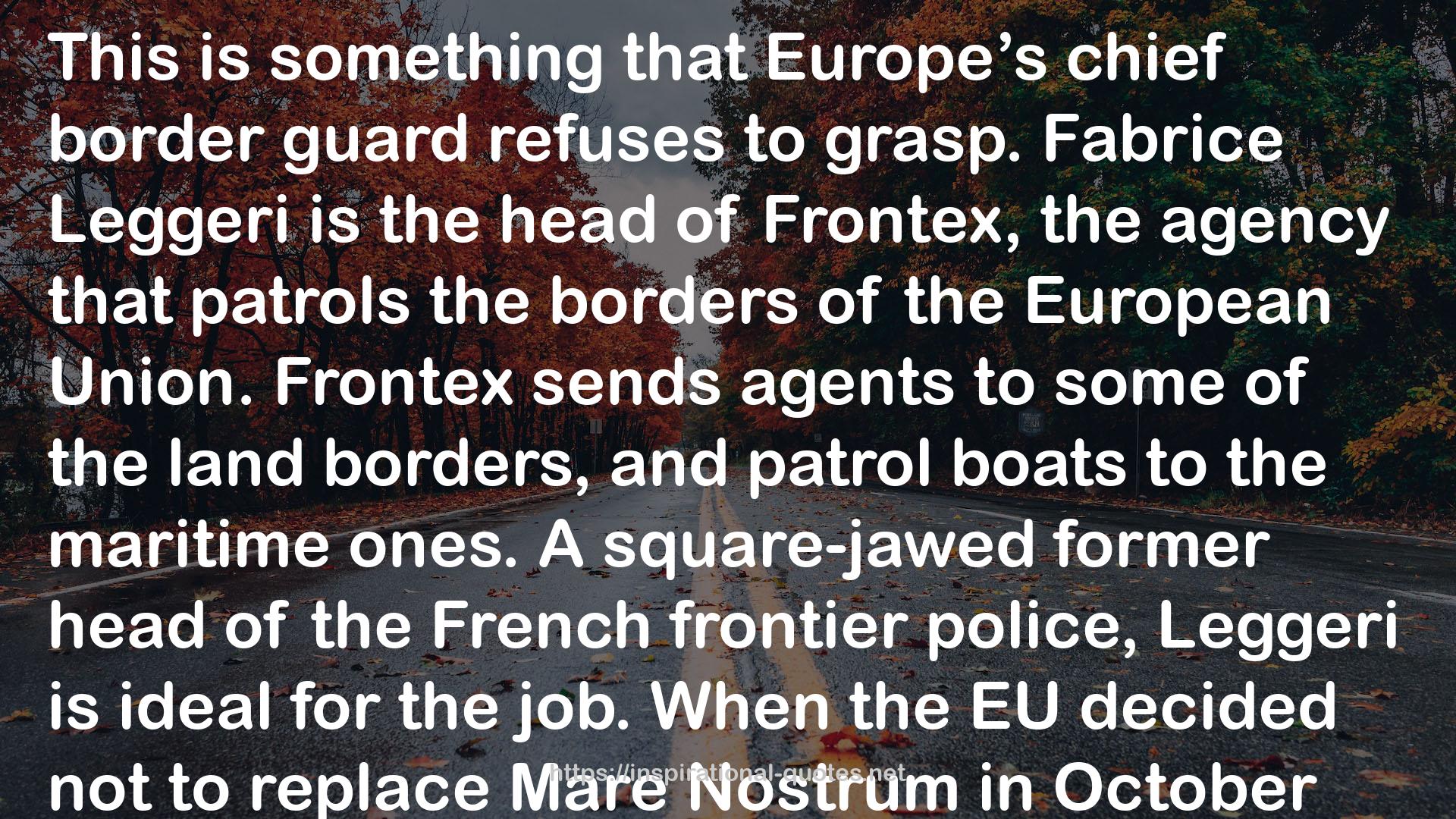" This is something that Europe’s chief border guard refuses to grasp. Fabrice Leggeri is the head of Frontex, the agency that patrols the borders of the European Union. Frontex sends agents to some of the land borders, and patrol boats to the maritime ones. A square-jawed former head of the French frontier police, Leggeri is ideal for the job. When the EU decided not to replace Mare Nostrum in October 2014, it claimed that Leggeri’s teams were more than able to pick up the slack in the southern Mediterranean, thanks to a Frontex operation there known by its codename of ‘Triton’. This was an inspired piece of window dressing. Unlike Mare Nostrum, Triton’s mandate was not to search for and rescue people. Its role was merely to patrol the continent’s nautical borders – in waters far to the north of where Italian ships used to station themselves during Mare Nostrum. It had fewer ships at its disposal, and a budget that was just a third of its predecessor’s. The assumption was that a smaller-scale border-patrol mission would indirectly save more lives. "
― Patrick Kingsley , The New Odyssey: The Story of Europe's Refugee Crisis
